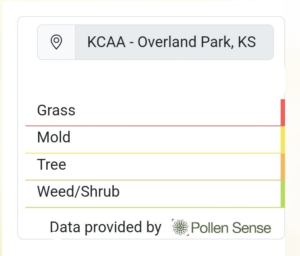CLINICAL RESEARCH TRIALS
CLINICAL TRIALS
KCAA partners with Velocity Clinical Research to conduct clinical studies. Together, our wide-ranging research aids in the development of improved therapies for our own patients as well as for allergy and asthma sufferers worldwide. All studies are overseen by our KCAA physicians.
Clinical trials (also called research studies) help determine if medicines, medical devices, and tests are safe and effective. The goal is to develop new or improved medicines and more effective cures.
Our studies offer a way for almost anyone, regardless of age or background, to help improve human health and wellbeing. Benefits beyond helping to advance medicine include:
- Obtaining care from our specialists at no cost
- Learning about new medicines in development, especially for our patients who struggle to find effective therapies currently on the market
- Receive compensation for study-related time and/or travel (amounts vary by study)
CLINICAL TRIAL SAFETY
KCAA has completed nearly 300 trials over the past 30 years. Our studies are held to incredibly high standards set by the U.S. Food and Drug Administration (FDA) and Velocity Clinical Research. We make every effort to ensure patient safety. Participation is always optional, and we will continue to provide excellent traditional care regardless of what you decide.
HOW TO PARTICIPATE
If you would like to be notified when a study may be right for you, you can SIGN UP ONLINE or call Velocity at (402) 934-7563. Velocity Clinical Research is located within our Overland Park location at 8675 College Boulevard.
You can also ask about current studies when visiting KCAA. If we believe a study is right for you, we will reach out to you with the study information.
Whether KCAA or Velocity reaches out to you, know that we fully support any clinical study you are contacted about.
FREQUENTLY ASKED RESEARCH TRIAL QUESTIONS
What is the purpose of research?
What is a clinical trial?
What is a protocol?
Who gets to be in the study?
What is Informed Consent?
Informed consent is the process that gives information to those thinking about taking part in the research. After learning about the research, a participant should understand the:
- Purpose of the study
- Procedures involved in the study
- Possible risks and benefits of taking part
- Rights of study participants
- Voluntary nature of the research
- Options instead of taking part in the study
Participants should only agree to take part after clearly understanding the study and feeling comfortable. Participants should take time to talk over the decision with doctors, family, and friends. Once the decision is reached to participate, an informed consent form will be signed. If researchers learn added information about the participant during or after the study, they must inform the participant.
Who conducts the research studies?
Does it cost to participate in a research study?
How long do research studies last?
The duration varies. Studies at KCAA are as short as a couple of months or as lengthy as several years. The study coordinator describes the number and frequency of visits and the length of the study.
Is my information kept confidential?
What occurs during study visits?
What are a study participant’s responsibilities?
Clinical study participants must agree to:
- Follow instructions provided by the study team
- Provide accurate and complete information about past and current medical condition
- Carefully weigh the risks and benefits of taking part
- Follow directions regarding non-study related medications
- Inform the study doctor about changes in medications, illnesses or injuries, unexpected side effects or intent to have medical treatments outside of the study
- Attend scheduled visits requested by the study team
- Inform the study team if needing to miss an appointment
- Inform the study team if contact information changes
- Follow the procedures for withdrawal, if deciding to leave the study



